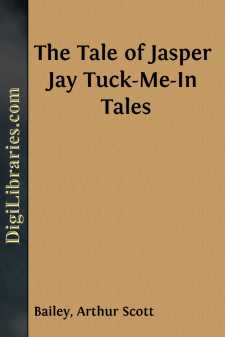Categories
- Antiques & Collectibles 13
- Architecture 36
- Art 48
- Bibles 22
- Biography & Autobiography 813
- Body, Mind & Spirit 142
- Business & Economics 28
- Children's Books 17
- Children's Fiction 14
- Computers 4
- Cooking 94
- Crafts & Hobbies 4
- Drama 346
- Education 46
- Family & Relationships 57
- Fiction 11829
- Games 19
- Gardening 17
- Health & Fitness 34
- History 1377
- House & Home 1
- Humor 147
- Juvenile Fiction 1873
- Juvenile Nonfiction 202
- Language Arts & Disciplines 88
- Law 16
- Literary Collections 686
- Literary Criticism 179
- Mathematics 13
- Medical 41
- Music 40
- Nature 179
- Non-Classifiable 1768
- Performing Arts 7
- Periodicals 1453
- Philosophy 64
- Photography 2
- Poetry 896
- Political Science 203
- Psychology 42
- Reference 154
- Religion 513
- Science 126
- Self-Help 84
- Social Science 81
- Sports & Recreation 34
- Study Aids 3
- Technology & Engineering 59
- Transportation 23
- Travel 463
- True Crime 29
Sort by:
I. THE WATER GOATS "And then," said the landscape gardener, combing his silky, pointed beard gently with his long, artistic fingers, "in the lake you might have a couple of gondolas. Two would be sufficient for a lake of this size; amply sufficient. Yes," he said firmly, "I would certainly advise gondolas. They look well, and the children like to ride on them. And so do the adults....
more...
by:
John Reed
On the platform sat the leaders of the old Tsay-ee-kah-for the last time dominating the turbulent Soviets, which they had ruled from the first days, and which were now risen against them. It was the end of the first period of the Russian revolution, which these men had attempted to guide in careful ways…. The three greatest of them were not there: Kerensky, flying to the front through country towns...
more...
Four years at Wellesley; two years about equally divided among Paris, Dresden and Florence. And now Jane Hastings was at home again. At home in the unchanged house—spacious, old-fashioned—looking down from its steeply sloping lawns and terraced gardens upon the sooty, smoky activities of Remsen City, looking out upon a charming panorama of hills and valleys in the heart of South Central Indiana....
more...
We Jolly Sailor Boys. “Come along, boys; look sharp! Here’s old Dishy coming.” “Hang old Dishipline; he’s always coming when he isn’t wanted. Tumble over.” We three lads, midshipmen on board HM clipper gunboat the Teaser, did “tumble over”—in other words, made our way down into the boat alongside—but not so quickly that the first lieutenant, Mr Reardon, who, from his slightly...
more...
I This is the story of Margaret Hugonin and of the Eagle. And with yourpermission, we will for the present defer all consideration of thebird, and devote our unqualified attention to Margaret. I have always esteemed Margaret the obvious, sensible, mostappropriate name that can be bestowed upon a girl-child, for it is aname that fits a woman--any woman--as neatly as her proper size ingloves. Yes, the...
more...
In Bombay Late in the evening of the sixteenth of February, 1879, after a rough voyage which lasted thirty-two days, joyful exclamations were heard everywhere on deck. "Have you seen the lighthouse?" "There it is at last, the Bombay lighthouse." Cards, books, music, everything was forgotten. Everyone rushed on deck. The moon had not risen as yet, and, in spite of the starry tropical...
more...
by:
Honore de Balzac
CHAPTER I In 1792 the townspeople of Issoudun enjoyed the services of a physician named Rouget, whom they held to be a man of consummate malignity. Were we to believe certain bold tongues, he made his wife extremely unhappy, although she was the most beautiful woman of the neighborhood. Perhaps, indeed, she was rather silly. But the prying of friends, the slander of enemies, and the gossip of...
more...
by:
John Tyndall
PREFACE. In the following work I have not attempted to mix Narrative and Science, believing that the mind once interested in the one, cannot with satisfaction pass abruptly to the other. The book is therefore divided into Two Parts: the first chiefly narrative, and the second chiefly scientific. In Part I. I have sought to convey some notion of the life of an Alpine explorer, and of the means by which...
more...
by:
Hilaire Belloc
A PLEA FOR THE SIMPLER DRAMA It is with the drama as with plastic art and many other things: the plain man feels that he has a right to put in his word, but he is rather afraid that the art is beyond him, and he is frightened by technicalities. After all, these things are made for the plain man; his applause, in the long run and duly tested by time, is the main reward of the dramatist as of the painter...
more...











